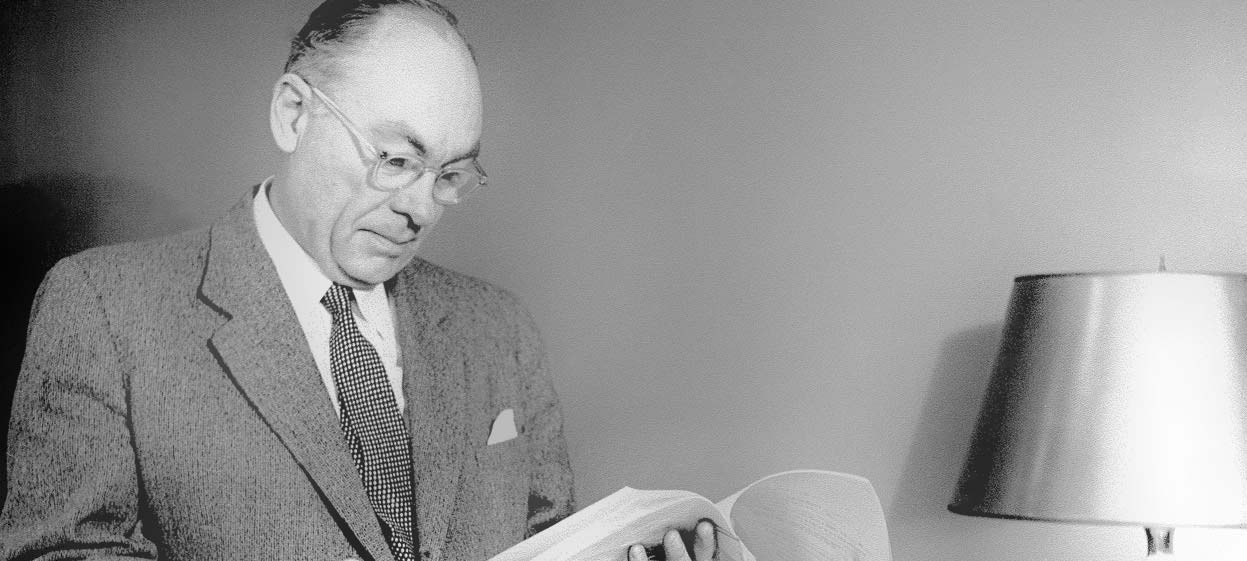George Gallup founded the American Institute of Public Opinion -- which evolved into Gallup -- in 1935. His legacy of integrity and independence has made Gallup among the most famous and trusted brand names in the world.
Throughout his life, Dr. Gallup remained committed to learning and reporting "the will of the people." Gallup today employs more than 2,000 professionals in 30 offices around the world to provide analytics and advice to help leaders and organizations solve their most pressing problems by knowing more than any other organization about "the will" of 7 billion employees, customers, students, and citizens.
Born in Jefferson, Iowa, on Nov. 18, Dr. Gallup has been consistently recognized as one of the world's greatest Americans, including awards from Life (1990) as one of The 100 Most Important Americans of the 20th century and Atlantic (2006) as one of The 100 Most Influential Americans of All Time.
Dr. Gallup earned his bachelor's and master's degrees, and his doctorate, at the University of Iowa, and taught college courses in journalism at Drake University, Northwestern University, and Columbia University -- conducting the first national survey of magazines to find out which ads attracted the most attention.
In 1932, Dr. Gallup joined advertising firm Young & Rubicam in New York as head of its marketing and copy research departments, establishing the first nationwide radio audience measurement using a technique he originated. Later, he developed the impact method, a recall procedure now widely used to measure television and print advertising effectiveness, and in the 1940s pioneered a research program for Hollywood movie studios that culminated in forecasts of box office receipts.
While at Young & Rubicam, Dr. Gallup began his work in the field of public opinion and election forecasting. He was inspired in part by the desire to help his mother-in-law, Ola Babcock Miller, win election and then re-election twice as Iowa's first female secretary of state.
Dr. Gallup founded the American Institute of Public Opinion, the precursor of Gallup, in Princeton, N.J., in 1935. To ensure his independence and objectivity, Dr. Gallup resolved that he would undertake no polling that was paid for or sponsored in any way by special-interest groups such as the Republican and Democratic parties -- a principle Gallup upholds to this day.
Dr. Gallup's initial breakthrough occurred in 1936, when he correctly predicted that Franklin Roosevelt would defeat Alfred Landon for the U.S. presidency -- directly contradicting The Literary Digest, the poll of record at the time. With national newspaper syndication of the "The Gallup Poll" and almost daily references in the press, "Gallup" soon became a household word.
The topics covered by The Gallup Poll during Dr. Gallup's lifetime closely reflected the turbulent events of this period. He sought the public's views on reform in education, in the criminal justice system, and in politics, including a better way of seeking out the ablest men and women for high political office.
Dr. Gallup never tired of saying that there were billions of ways to live a life and that each one should be studied. Among his most ambitious projects was a global survey conducted in 1976 to determine the quality of life in all areas of the world, a study that sampled populations embracing two-thirds of the world's population. And in the late 1970s, he conducted an international values study that dealt with the social, moral, and religious attitudes of the peoples of most major European countries, including the Eastern bloc, and around the world. Today, Gallup's World Poll of more than 160 countries, which are home to 98% of the world's population, continues this noble mission.
For more information about Dr. Gallup, visit The Gallup House.
